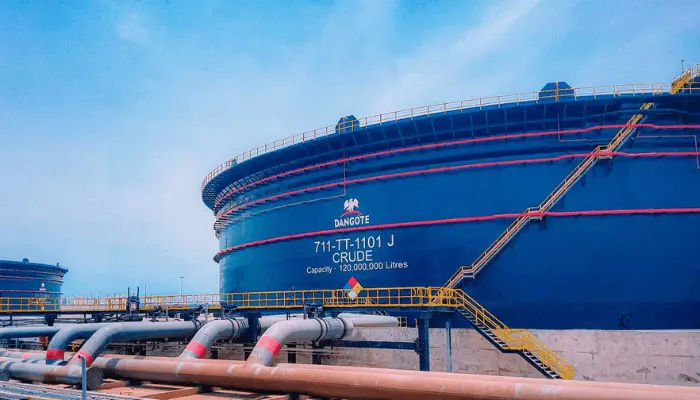Alhaji Aliko Dangote, President of the Dangote Group, has announced an expansion of the storage capacity at his refinery by 600 million litres. This expansion will increase the total storage capacity to 5.3 billion litres from the current 4.78 billion litres. Dangote made this announcement at the Afreximbank Annual Meetings and AfriCaribbean Trade & Investment Forum in Nassau, The Bahamas.
Dangote revealed that international oil companies have refused to sell crude oil to his refinery, aiming to sabotage his efforts. He recounted how similar resistance occurred with diesel production, where the price dropped significantly from N1,700 to N1,200 per litre after his refinery started producing diesel.
Dangote highlighted that his refinery would serve as a strategic reserve for Nigeria, addressing the country's lack of strategic reserves for petrol. He noted that while the government manages gasoline prices, his refinery has the potential to stabilize and reduce diesel prices significantly. He suggested that the same could happen with petrol prices once local production scales up.
Dangote emphasized the issue of importing "dirty" fuels with high sulfur content, which contribute to environmental pollution and health issues such as cancer. He urged the Nigerian government to enforce stricter regulations to prevent the importation of substandard fuels.
READ ALSO
Dangote Refinery Exports First Jet Fuel Cargo to Europe
Federal Government Anticipates Reduction in Fuel Import Bill as Dangote Refinery Begins PMS Sale
The Dangote refinery, with its 650,000 barrels per day capacity, faced numerous challenges, including attempts by international banks and oil cartels to derail the project. Despite these obstacles, Dangote has successfully paid off a significant portion of the $5.5 billion loan used for the $19 billion project.
Dangote stressed that his companies produce about 1,500 megawatts of power for self-consumption, reducing pressure on Nigeria’s power grid. He advocated for industrial parks with independent power generation to foster economic growth and attract investments.
Dangote plans to supply cheaper fuel to the Caribbean, where fuel prices are currently high. He proposed setting up a terminal in the region to facilitate the distribution of affordable energy, thereby boosting local economies.
Operators of modular refineries have suggested that the pump price of petrol could drop to around N300 per litre with increased local production, despite the global pricing of crude oil. They drew parallels with the reduction in diesel prices following Dangote's intervention in that market.
Although Dangote initially planned to release premium motor spirit (PMS) into the market by June, he has postponed this to mid-July due to minor delays. He remains optimistic about the refinery’s capacity to meet Nigeria’s and West Africa’s fuel needs, reducing reliance on imports and stabilizing fuel prices.
In summary, Aliko Dangote's efforts to expand his refinery’s capacity and tackle supply chain challenges signify a potential shift in Nigeria’s fuel market, with implications for local and regional economies. His initiatives highlight the importance of local production, quality control, and strategic reserves in achieving energy independence and economic stability.





2 thoughts on “Aliko Dangote Expands Refinery Storage, Faces Challenges from International Oil Companies”